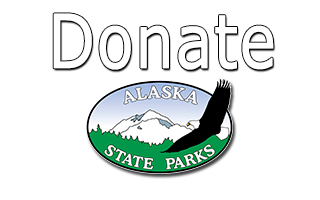2009 Kenai River Recreation Use Study
The Kenai River is widely known as one of the most outstanding recreation resources in Alaska, but its popularity has led to high use and impacts at some times and places, which are an on-going challenge to Kenai River managers. While several agencies have (sometimes overlapping) management responsibilities on the Kenai, State Parks is the lead managing agency for recreation use on the river and adjacent state land. The last major study of recreation use impacts was in 1992-93, and the most recent Comprehensive Management Plan (1997) identified the need for more information about recreation use and impacts. Funding for the study became available this year; Confluence Research and Consulting (with offices in Anchorage and Corvallis, Oregon) received the contract to conduct the study for State Parks and the KRSMA board.
The study will assess the "state of recreation" on the river. The overall goal is to describe use levels and patterns, impacts, user and trip characteristics, impact tolerances, attitudes toward general management strategies, and acceptability of specific management actions. The study will address these issues through coordinated user, guide, and property owner surveys, as well as field assessments (detailed information about the amount, type, and distribution of use through the season). Users will be surveyed on-site from May through September, with a longer follow-up survey sent to a random sample of on-site users.
The study is primarily directed at "recreation experience" issues rather than biophysical impacts (e.g., bank trampling, boat-caused erosion, hydrocarbon pollution), although respondents will be asked about management actions that may be used to address those impacts. Results are expected to be considered by State Parks, the KRSMA Advisory Board, other agencies, stakeholders, and the public before additional recreation management initiatives are taken on the river. The study is not designed to address fisheries management issues (e.g., fishing regulations; allocations between commercial, subsistence, and sport fishing users).
Study Schedule
A study plan is being developed in February 2009 in collaboration with the River Use Committee of the KRSMA Board and agency staff. Researchers will develop draft surveys in March and pre-test them in April and early May. On-site surveying will occur from mid-May through September. Data will be analyzed through the winter and results will be presented in spring 2010.
Focus Group Meetings
The study will conduct meetings with important "stakeholders" to discuss the study and learn about the river's recreation management issues. Meetings are currently planned with:
- Guides
- Kenai River Sport Fishing Association
- Kenai Area Fisherman's Coalition
- Property owners
- Cooper Landing / Upper Kenai area users
- Anchorage area users
Meeting objectives:
There are two main objectives at these meetings:
- Briefly review the study objectives and overall approach (researchers will provide information about the study to stakeholders).
- Discuss the river's recreation management issues, including recreation opportunities, impacts and tolerances for impacts, coping strategies, and potential management actions to address them (stakeholders providing information and ideas to researchers).
Discussion will be semi-structured and cover:
- Defining seasons and segments (e.g., late and early king runs, early and late sockeye runs) to guide survey sampling.
- Prioritizing launches or other areas to survey users.
- Prioritizing impacts (review and update 1992 study impacts).
- Reviewing and prioritizing use level count options (and discussing possible volunteer counting efforts that may assist the study).
- Reviewing how users "cope" with impacts.
- Brainstorming management strategies and specific management actions ( review and update the 1992 study options).
Meeting participants
The focus groups will be limited to 12 people to maximize opportunities for participation and exchange in a "working group" atmosphere. Participants will ideally have diverse experience on the river, with knowledge about drift, powerboat, and bank angling as well as scenic trips. With the exception of the Cooper Landing meeting (which will focus on the Upper River), discussion will address all three river segments. Strong voices and opinions among participants is desirable, but we also want participants to be good listeners and respectful of others' ideas. In a working group format, the best results occur when everyone feels they have had a chance to contribute.
Focus group caveats
The focus group meetings are not a decision-making forum – the goal is to discuss ideas and share knowledge about the river so the study can be conducted successfully. The focus groups are also not the only way that stakeholders or the public can become involved in the study; a "pre-test" of the draft surveys will occur in April. Although data from the pre-test will not be analyzed for the study, pre-test comments are critical for improving questions and making sure all the important issues are being addressed.

